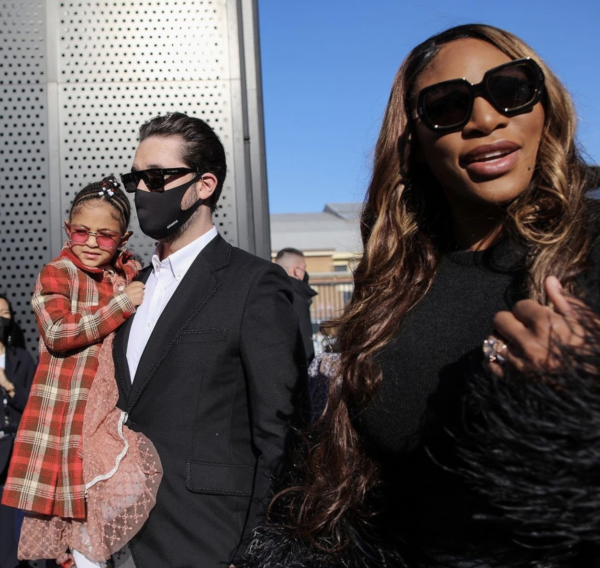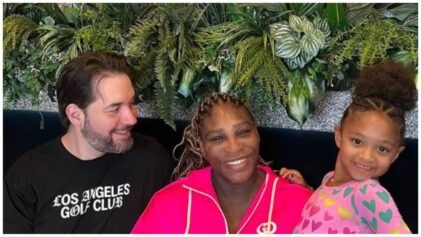Serena Williams opened up about her harrowing childbirth experience in an essay for Elle magazine titled, “How Serena Williams Saved Her Own Life.” The tennis superstar shares a 4-year-old daughter, Olympia, with her husband of five years, Alexis Ohanian.
She began by discussing her adolescent years in tennis and explaining she found out she was pregnant two days before the 2017 Australia Open. She said her pregnancy was “unplanned,” but she and her husband were up for the task.

“Of course, being pregnant didn’t mean I couldn’t play tennis. I was scheduled to compete at eight weeks along. I wasn’t sure how the Open would go; during training, I was getting more fatigued between points. Each morning — and I’m not a morning person to begin with — I was still determined to play fast and hard before the Melbourne heat socked me. I won seven matches, all in straight sets.”
Williams said she had a “wonderful pregnancy” despite experiencing headaches and “weird” taste in the first trimester. She then began to embrace every moment and feeling of what was to come in the birthing room.
“I was completely in the moment. I loved the cramps. I loved feeling my body trying to push the baby out. I wasn’t on an epidural; to get through it, I was using my breath and all the techniques I’d learned from birth training (I had taken every birthing class that the hospital had to offer).”
Williams describes battling contractions while her husband consulted with doctors about the safest birthing method: a C-section. Her scared nature stemmed from her history of having blood clots. After giving birth, she said she woke up the next day to find “my body was paralyzed. I couldn’t get out of bed because my legs were still numb.
The 40-year-old recalls coughing heavily until her stitches burst, resulting in surgery. Doctors conducted a second surgery after discovering several complications, including an embolism, a clot in one of her arteries.
She said, “When I woke up from that surgery, in the hospital room with my parents and my in-laws, I felt like I was dying. They were trying to talk to me, and all I could think was, ‘I’m dying, I’m dying. Oh my God.’ I really thought I would faint. I got up somehow, and I went into the other room because I didn’t want my mom to worry. I didn’t want her to hear me; she’s the world’s biggest worrier.”
After a total of four surgeries, she was able to go home and be with her family. This isn’t the first time Williams has shared this story and her terrifying experience lead her to invest in Mahmee, which is a Black-owned start up that helps women with prenatal and postpartum healthcare.
In a statement about her investment, Williams said, “Given the bleak data surrounding maternal death and injury rates, I believe that it is absolutely critical right now to invest in solutions that help protect the lives of moms and babies. Mahmee’s data-driven approach is the right solution to one of the most significant problems in the system: that of fragmented care.”


